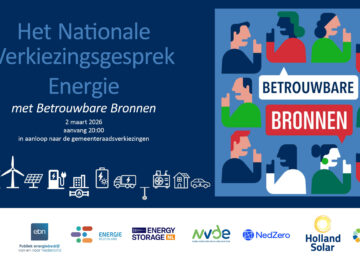Increase in transmission rates holds up installation of batteries
TenneT announced this week an increase in transmission tariffs to 90%. According to Energy Storage NL, the trade association for Dutch energy storage industry, this increase frustrates the business case of batteries and stops the realization of the needed CO2-free flexibility. That flexibility is necessary for a successful energy transition. Energy Storage NL therefore argues for an accelerated exception for batteries in the systematics of transport tariffs.
Transportation rate
A transmission tariff is paid because of the construction and use of the electricity grid. The tariff distinguishes two target groups, namely "producers" and "consumers" of electricity. From historical origins, producers are exempt from transmission tariffs and consumers pay the full bill.
Because of the current system, batteries are currently considered consumers of electricity when they charge the battery. Future costs are estimated to be in the millions, with batteries paying more in transmission costs than the heaviest polluters. This while batteries provide precisely the CO2-free flexibility needed, thereby ensuring that the grid is used more efficiently. As a result, batteries provide better power system stability at a lower cost.
As transmission rates continue to be increased due to cost increases (planned 90% increase for 2023 and 75% increase for 2024), annual operational costs for batteries will increase dramatically. Transportation costs already exceed 85% of operating costs in some business cases. Energy Storage NL already saw the current transportation tariffs as one of the main obstacles to the realization of energy storage, the announced increase will only exacerbate this problem.
Exception for batteries
Energy Storage NL therefore argues for an accelerated exception for batteries in the transmission tariff system. Specifically, ESNL proposes that no transport tariff should be paid by batteries if their actions do not interfere with the electricity grid. The industry association also points to other countries such as Germany, Belgium and England, where exemptions on transmission tariffs for batteries have already been introduced. Currently, therefore, there is no international level playing field for batteries.
Latest News
 News
News
TNO en partners starten project om langetermijn-energieopslag in Nederlands energiesysteem te versnellen
10 February 2026 News
News
Will you also come to the National Election Energy Talk?
February 4, 2026 News
News


